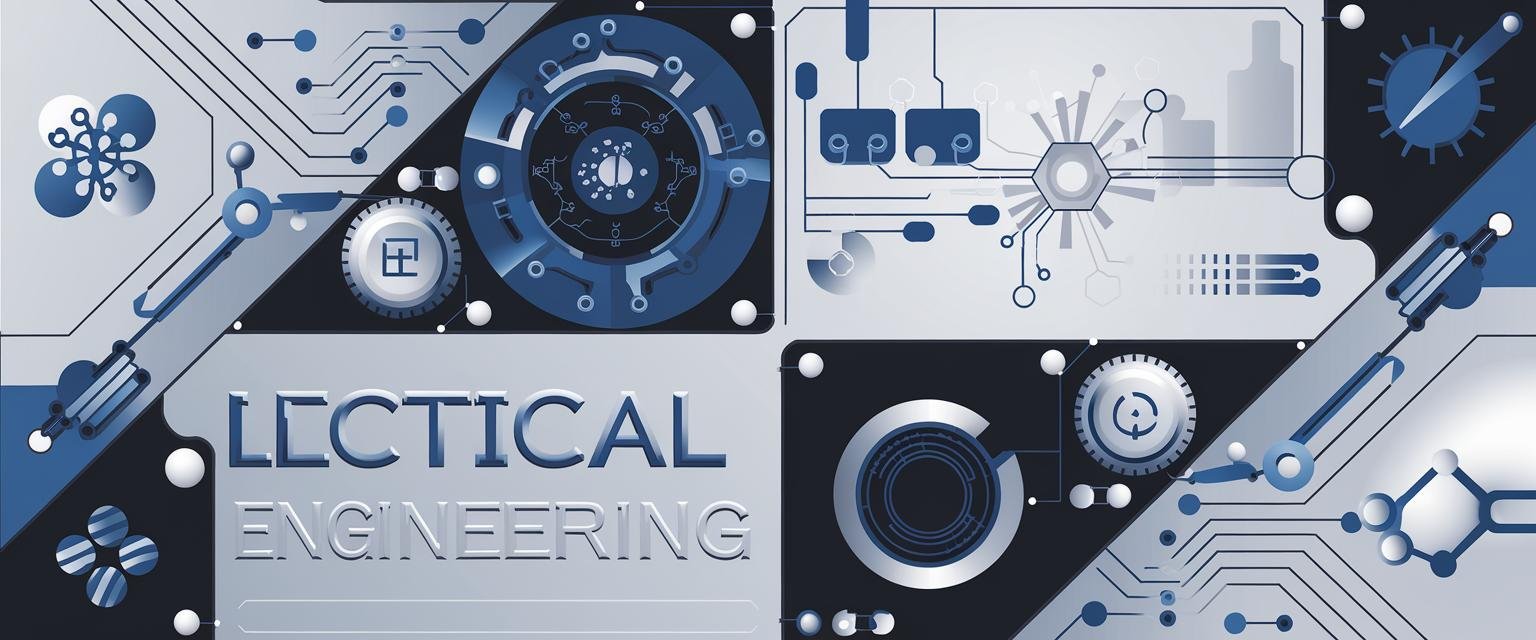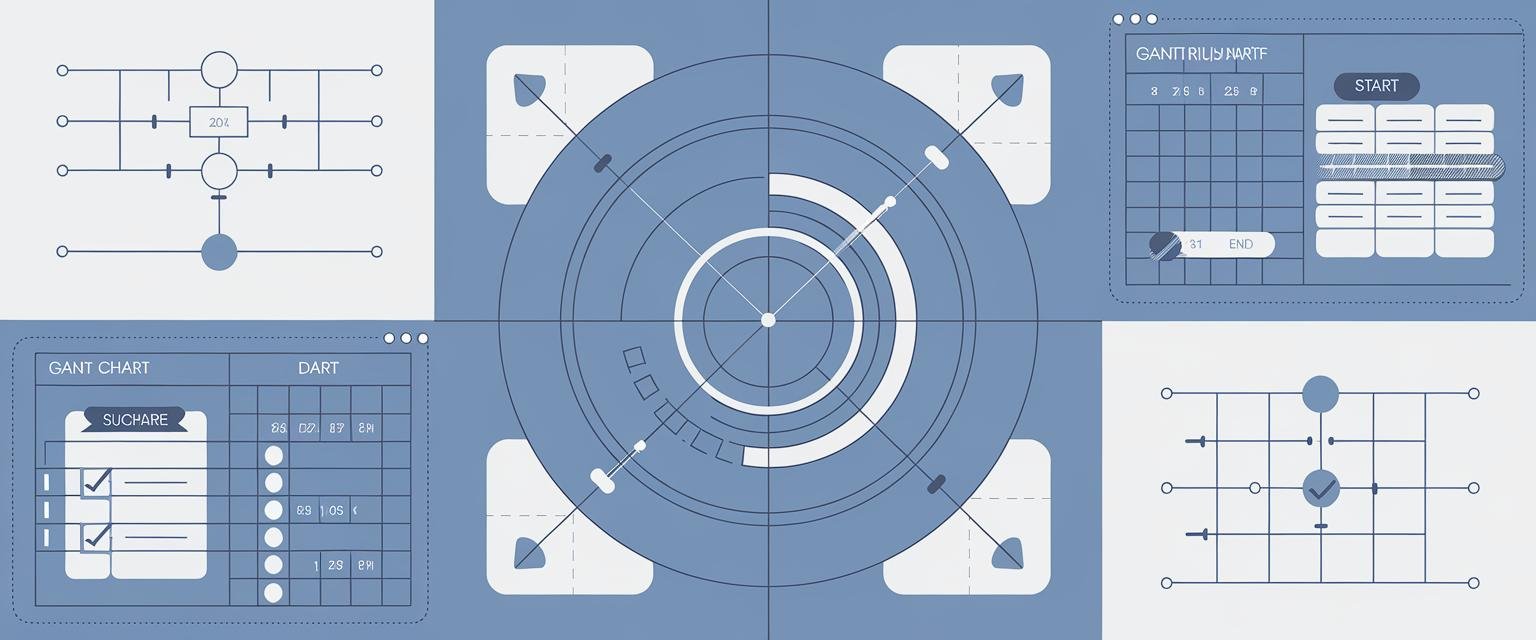Did you know that practically everything in your home—from your smartphone to your refrigerator—relies on electrical engineering principles? I still remember the day I dismantled my dad’s old radio when I was ten. He wasn’t thrilled, but that moment sparked my lifelong fascination with how electrical systems power our modern world.
During my B.Tech studies at Jadavpur University and my work on various products across different domains, I’ve seen firsthand how electrical engineering forms the backbone of technological innovation. Whether you’re a student preparing to enter this field or simply curious about what makes your devices tick, understanding these seven key concepts will give you valuable insight into this exciting discipline.
In this guide, I’ll walk you through the fundamentals of electrical engineering, explore career opportunities, and help you understand what it takes to succeed in this dynamic field. Let’s power up your knowledge!
Check out our learning resources for even more in-depth electrical engineering content.
What Is Electrical Engineering?
Electrical engineering is the branch of engineering that deals with the study and application of electricity, electronics, and electromagnetism. But it’s so much more than just working with electrical circuits.
At its core, electrical engineering involves designing and developing systems that generate, transmit, and use electrical power. From the massive power grids that light up cities to the tiny microprocessors in your smartwatch, electrical engineers create the technology that powers modern life.
The field encompasses everything from traditional power systems to cutting-edge technologies like renewable energy systems, robotics, telecommunications, and computer systems. It’s incredibly diverse, allowing professionals to specialize in areas that match their interests and strengths.
Why Electrical Engineering Matters
Electrical engineering touches almost every aspect of our lives:
- Energy: Engineers design the systems that generate and distribute electricity to homes, businesses, and industries.
- Communications: From satellites to fiber optics to 5G networks, electrical engineers make global communication possible.
- Transportation: Electric vehicles, traffic control systems, and modern aircraft all rely on electrical engineering.
- Healthcare: Medical devices, diagnostic equipment, and monitoring systems save lives thanks to electrical engineering principles.
- Entertainment: Television, streaming services, gaming consoles—all made possible through electrical engineering.
As technology continues to advance, electrical engineers will play an even more critical role in shaping our future.
The 7 Essential Electrical Engineering Concepts
Let me walk you through the fundamental concepts that form the backbone of electrical engineering—the same concepts that transformed my understanding of how our technological world functions.
1. Voltage and Current: The Foundation
At the heart of electrical engineering are two fundamental concepts: voltage and current. Think of them as the “water pressure” and “water flow” of electricity.
Voltage is the electrical pressure that pushes electrons through a circuit, measured in volts (V). It’s like the pressure that drives water through a pipe. Higher voltage means more electrical pressure.
Current is the flow of electrons through a conductor, measured in amperes (A). It’s similar to the amount of water flowing through a pipe. More current means more electrons moving past a point per second.
The relationship between voltage, current, and resistance is defined by Ohm’s Law:
V = I × R
Where:
- V is voltage (volts)
- I is current (amperes)
- R is resistance (ohms)
This simple equation is one of the most important in electrical engineering. If you know any two values, you can calculate the third.
I remember struggling with these concepts during my first year at Jadavpur University until a professor used everyday analogies. He compared a circuit to a water system where an elevated tank represented voltage (potential energy), while the water flowing out represented current. A narrow pipe would add resistance, reducing the flow. That explanation finally made everything click for me!
2. Circuit Design and Analysis: Building Blocks
Circuits are the pathways that allow electricity to flow and perform useful work. They consist of various components connected by conductive paths.
Basic circuit elements include:
- Resistors: Limit current flow (like a narrow section in a water pipe)
- Capacitors: Store electrical energy (like a water tank)
- Inductors: Store energy in a magnetic field (like a water wheel that keeps spinning)
- Diodes: Allow current flow in only one direction (like a one-way valve)
- Transistors: Control the flow of current, acting as amplifiers or switches (like a water faucet)
When analyzing circuits, engineers use various techniques:
- Kirchhoff’s Current Law (KCL): The sum of currents entering a junction equals the sum of currents leaving it.
- Kirchhoff’s Voltage Law (KVL): The sum of all voltage drops around a closed loop equals zero.
- Thevenin and Norton Equivalents: Methods to simplify complex circuits for easier analysis.
Circuit simulation tools like SPICE (Simulation Program with Integrated Circuit Emphasis) help engineers test their designs before building physical prototypes. I spent countless nights in college working with LTspice to troubleshoot circuit designs without wasting components—a lifesaver for both my projects and my limited student budget!
3. Power Systems and Energy Efficiency: Powering the World
Power systems engineering focuses on generating, transmitting, and distributing electrical power efficiently and reliably.
The journey of electricity typically involves:
- Generation: Converting other forms of energy (mechanical, chemical, solar, etc.) into electrical energy at power plants.
- Transmission: Moving electricity at high voltages over long distances to minimize losses.
- Distribution: Stepping down voltages and delivering electricity to end users.
Energy efficiency has become increasingly important in our resource-constrained world. During my work on industrial projects in eastern India, I saw how even small efficiency improvements in factory power systems could lead to massive energy savings over time—sometimes reducing power consumption by 15-20% while maintaining the same output.
Key areas of focus include:
- Smart grids: Advanced electrical grids that use digital technology to monitor and manage electricity flow.
- Renewable energy integration: Incorporating solar, wind, and other sustainable sources into the power grid.
- Energy storage: Developing better batteries and other storage solutions to address intermittency issues with renewable sources.
According to the U.S. Department of Energy, renewable energy is the fastest-growing energy source in the United States, increasing 100% from 2000 to 2018.
4. Digital Logic and Microcontrollers: The Brains of the Operation
Digital logic forms the foundation of all modern computing systems. It uses binary signals (0s and 1s) to perform operations and make decisions.
The basic building blocks of digital systems are logic gates:
- AND: Output is 1 only if all inputs are 1
- OR: Output is 1 if any input is 1
- NOT: Inverts the input (changes 1 to 0 and vice versa)
- XOR: Output is 1 if inputs are different
These simple elements combine to form more complex circuits like flip-flops, registers, counters, and ultimately, microcontrollers and microprocessors.
Microcontrollers are small computers on a single integrated circuit that contain a processor, memory, and programmable input/output peripherals. They’re the brains behind countless embedded systems—devices that have computing power built in but aren’t general-purpose computers.
Examples of embedded systems include:
- Washing machines and dishwashers
- Automotive engine control units
- Smart thermostats
- Medical devices
- Industrial control systems
I’ve personally worked with Arduino and other microcontroller platforms extensively, and let me tell you—these tiny chips pack incredible capability into a small package. Back in 2019, I built a small home automation system using a handful of microcontrollers that cost less than $50 total. This DIY system let me control lights, monitor temperature, and even automate my coffee maker, saving me hours of manual work every week.
5. Signal Processing: Transforming Information
Signal processing involves analyzing, modifying, and manipulating signals to extract information or convert them into more useful forms.
Signals can be:
- Analog: Continuous signals that vary smoothly over time (like your voice)
- Digital: Discrete signals that take on specific values (like the binary data in computers)
Key signal processing techniques include:
- Filtering: Removing unwanted components from signals (like noise)
- Modulation: Encoding information onto carrier signals (essential for wireless communications)
- Sampling: Converting analog signals to digital form
- Fast Fourier Transform (FFT): Breaking down complex signals into their component frequencies
Signal processing is crucial in telecommunications, audio and video processing, radar systems, medical imaging, and countless other applications.
During my final year project at Jadavpur University, I worked on a voice recognition system for controlling home appliances. We used various signal processing techniques to filter out background noise and extract the key frequency components that made speech recognizable. The difference was remarkable—going from barely functional recognition in a noisy room to surprisingly accurate identification of commands even with the TV on in the background.
6. Electromagnetism: The Invisible Force
Electromagnetism is the foundation of electrical engineering, governing the relationship between electricity and magnetism. It explains how electric currents create magnetic fields and how changing magnetic fields generate electric currents.
Key principles include:
- Faraday’s Law of Induction: A changing magnetic field induces an electromotive force (EMF) in a conductor.
- Ampere’s Law: Electric current produces a magnetic field.
- Maxwell’s Equations: Four equations that describe how electric and magnetic fields are generated and altered by each other and by charges and currents.
These principles enable countless applications:
- Electric motors: Convert electrical energy to mechanical energy using magnetic fields.
- Generators: Convert mechanical energy to electrical energy (the reverse of motors).
- Transformers: Transfer electrical energy between circuits while changing voltage levels.
- Wireless communication: Electromagnetic waves carry information through space.
Understanding electromagnetism was my biggest “aha” moment during my studies at Jadavpur University. I remember sitting in the lab late one night when it finally clicked—suddenly, all these seemingly unrelated phenomena connected through these elegant principles. It completely changed how I viewed every electronic device around me.
7. Control Systems: Keeping Things in Check
Control systems manage, command, direct, or regulate the behavior of other devices or systems. They’re what allow complex systems to operate automatically and reliably.
A basic control system includes:
- Sensors: Measure the system’s current state (temperature, position, speed, etc.)
- Controllers: Compare the measured value to the desired value and decide what action to take
- Actuators: Carry out the controller’s commands (motors, valves, heaters, etc.)
- Feedback loop: Allows the system to adjust based on results of previous actions
Control systems appear everywhere:
- Cruise control in cars
- Home thermostats
- Industrial robotics
- Aircraft autopilots
- Chemical process control
During an internship at a manufacturing plant near Kolkata, I witnessed how sophisticated control systems could manage complex processes with minimal human intervention. The facility used PID (Proportional-Integral-Derivative) controllers to maintain exact temperatures in their chemical reactors—holding steady within 0.5°C despite significant external temperature fluctuations. This precision would be impossible for a human operator to manage consistently over 24-hour production cycles.
Subfields and Specializations in Electrical Engineering
One thing I love about electrical engineering is the diversity of paths you can take with this degree. Throughout my career, I’ve worked alongside specialists from many different subfields, each bringing unique expertise to solve complex problems.
Signal Processing Engineering
- Focuses on analyzing and manipulating signals to extract useful information
- Applications in communications, audio/video processing, medical imaging
- Requires strong mathematical background in calculus and differential equations
Control Systems Engineering
- Designs systems that maintain desired behavior despite external disturbances
- Used in robotics, aerospace, manufacturing, and automotive applications
- Combines theoretical knowledge with practical implementation skills
Telecommunications Engineering
- Deals with transmission of information across distances using various media
- Includes wireless, satellite, and optical fiber communication systems
- Evolving rapidly with new technologies like 5G and beyond
Power Engineering
- Focuses on generation, transmission, and distribution of electrical power
- Works with utilities, renewable energy systems, and microgrids
- Increasingly important with the growth of renewable energy and smart grids
Computer Engineering
- Bridges electrical engineering and computer science disciplines
- Designs computer hardware and embedded systems
- Includes computer architecture, digital design, and VLSI (Very Large Scale Integration)
Electronics Engineering
- Focuses on electronic circuits, components, and systems
- Includes analog and digital circuit design and implementation
- Applications in consumer electronics, medical devices, and industrial equipment
Emerging Fields in Electrical Engineering
The field continues to evolve with exciting new areas that blend traditional electrical engineering with other disciplines:
- Internet of Things (IoT): Connecting everyday objects to the internet, creating smart environments
- Artificial Intelligence Integration: Implementing AI and machine learning in electrical systems for smarter operation
- Renewable Energy Systems: Designing more efficient solar, wind, and other clean energy technologies
- Biomedical Engineering: Creating devices that interface with biological systems for diagnostics and treatment
During my career, I’ve noticed that engineers who specialize develop deeper expertise in their chosen area while still maintaining a solid understanding of the broader field. I started in power systems but later moved toward embedded systems and IoT—the fundamental electrical engineering principles translated perfectly across these specialties.
Educational Pathways in Electrical Engineering
If you’re considering electrical engineering as a career, you’re probably wondering about the educational journey ahead. Let me share what I’ve experienced and observed through my own education and career.
Key Courses and Skills Required
To become an electrical engineer, you’ll typically need to master:
Mathematics:
- Calculus (differential and integral)
- Linear Algebra
- Differential Equations
- Probability and Statistics
Sciences:
- Physics (especially electromagnetism and thermodynamics)
- Chemistry (basic principles)
Technical Skills:
- Programming (C++, Python, MATLAB)
- Circuit Analysis
- Signal Processing
- Control Theory
- Electronics
Software Tools:
- AutoCAD for electrical design
- MATLAB/Simulink
- Circuit simulation software
- PCB design software
During my time at Jadavpur University, I found that the theoretical courses laid a strong foundation, but it was the hands-on lab work and projects that truly cemented my understanding. I remember spending countless hours in the electronics lab troubleshooting circuits that refused to work as expected—these practical challenges taught me more about real-world engineering than any textbook could.
Don’t underestimate the importance of practical experience alongside theoretical knowledge. The best engineers I know can seamlessly move between abstract concepts and real-world implementation.
Certifications and Professional Credentials
While not always required, these credentials can substantially boost your career prospects:
- Fundamentals of Engineering (FE) Exam: I took this right after graduation as the first step toward professional licensure. It validates your fundamental technical knowledge across multiple disciplines.
- Professional Engineer (PE) License: This became essential when I started consulting—it’s required for engineers who offer services directly to the public and allows you to sign off on engineering documents.
- Specialized Certifications: IEEE offers various certifications in specialized areas. My certification in power systems analysis opened doors to projects I wouldn’t have accessed otherwise.
If you’re just starting out, focus on your degree first, but keep these professional credentials in mind for your career advancement strategy.
Career Opportunities in Electrical Engineering
Electrical engineering opens doors to diverse career opportunities across numerous industries. The technical foundation you build can take you in countless different directions.
Design and Development Roles
- Design Engineer: Creates new electrical systems and products
- R&D Engineer: Researches and develops new technologies and applications
- Hardware Engineer: Designs and tests physical electronic components
Testing and Quality Assurance
- Test Engineer: Evaluates and validates designs and products
- Quality Assurance Engineer: Ensures products meet safety and performance standards
- Reliability Engineer: Focuses on long-term performance and failure prevention
Specialized Engineering Roles
- Power Engineer: Works with electrical power generation and distribution
- Control Systems Engineer: Designs and implements automated control systems
- Telecommunications Engineer: Develops communication systems and infrastructure
- Embedded Systems Engineer: Creates computer systems built into other devices
Management and Consulting
- Project Manager: Leads engineering teams and projects from concept to completion
- Engineering Consultant: Provides specialized expertise to various clients
- Technical Sales Engineer: Combines engineering knowledge with business development
When I was weighing my career options, the salary potential definitely caught my attention. According to the U.S. Bureau of Labor Statistics, electrical engineers earn a median annual wage of $103,390. Better yet, jobs are projected to grow steadily, especially in exciting areas like renewable energy and telecommunications—fields where I’ve seen tremendous innovation just in the past few years.
Don’t forget that electrical engineering skills are highly transferable across industries. I started my career working on power distribution systems but later transitioned to smart home technology without needing to completely retrain. The fundamental principles remain the same; you just apply them in different contexts.
Looking for more career guidance? Explore our career development resources specifically for engineering professionals.
Tools and Technologies for Electrical Engineers
The right tools can make all the difference in your effectiveness as an electrical engineer. Here are the essential software and hardware tools that have served me well throughout my career.
Essential Software for Electrical Engineers
Proficiency with these tools will serve you well in almost any electrical engineering role:
- MATLAB: I use this almost daily for numerical computing, algorithm development, and data analysis. Its visualization capabilities are particularly useful for signal processing work.
- Simulink: Perfect for modeling and simulating dynamic systems and control loops.
- SPICE Programs: Circuit simulation tools like LTspice, PSpice, and TINA-TI let you test designs before building physical prototypes. I’ve saved countless hours and components by catching design flaws in simulation.
- CAD Software: Programs like AutoCAD Electrical and SolidWorks Electrical are essential for detailed design work.
- PCB Design Software: Tools like Altium Designer, Eagle, or KiCad for creating printed circuit board layouts.
- Programming Environments: For languages like Python, C/C++, and VHDL/Verilog. I found Python particularly useful for quick automation and data analysis tasks.
Essential Hardware and Test Equipment
Hands-on experience with these instruments is invaluable:
- Oscilloscopes: These let you visualize and analyze electrical signals in real-time. I can’t count how many times my oscilloscope helped me track down elusive timing issues in circuits.
- Multimeters: The most basic tool every electrical engineer needs for measuring voltage, current, and resistance.
- Logic Analyzers: Essential when working with digital systems to capture and display multiple digital signals simultaneously.
- Function Generators: Create electrical waveforms for testing circuits under various input conditions.
- Power Supplies: Provide controllable power to circuits during testing and development.
- Spectrum Analyzers: Examine signals in the frequency domain—particularly useful for RF and communications work.
Development Platforms for Learning and Prototyping
These platforms are perfect for learning and rapid prototyping:
- Arduino: My first recommendation for beginners—this open-source platform makes electronics and programming accessible and fun.
- Raspberry Pi: A single-board computer that’s perfect for more complex projects that need computing power.
- FPGA Development Boards: For digital logic design and hardware acceleration projects.
- Microcontroller Development Kits: Vendor-specific kits from companies like Texas Instruments, Microchip, and STMicroelectronics provide optimized environments for their processors.
According to Pannam Imaging, engineers who stay current with the latest tools tend to have better career advancement opportunities. This matches my experience exactly—knowing the industry-standard tools made me immediately valuable when joining new teams.
During my first job interview after college, the hiring manager was particularly impressed that I had already mastered Altium Designer through a university project. That skill alone put me ahead of other candidates with similar academic backgrounds.
Frequently Asked Questions About Electrical Engineering
What are the core subjects in electrical engineering?
The core subjects include circuit analysis, digital logic, electromagnetics, signals and systems, power systems, control systems, and electronics. These fundamentals form the foundation upon which more specialized knowledge is built. When I studied at Jadavpur University, we covered all these subjects in the first two years, with specialization coming in the later semesters.
The beauty of this approach is that you get exposed to the full breadth of electrical engineering before deciding which areas interest you most. I initially thought I wanted to focus on power systems, but after taking a fascinating digital systems course, I discovered my passion for embedded systems.
How do electrical engineers design and develop electrical systems?
The design process typically follows these steps:
- Requirements gathering and specification – understanding exactly what the system needs to do
- Conceptual design and simulation – creating high-level system architecture and testing it virtually
- Detailed design with component selection – choosing specific parts and detailing connections
- Prototyping and testing – building initial versions and verifying functionality
- Design refinement based on test results – incorporating improvements based on real-world performance
- Production and implementation – scaling up from prototype to final product
- Maintenance and updates – continuing support and enhancements
This process is rarely linear—I’ve never worked on a project that didn’t require multiple iterations and returns to earlier stages as we discovered issues or requirements changed. Engineering design is more like a spiral than a straight line from concept to completion.
What career opportunities are available for electrical engineers?
Electrical engineers can work in virtually any industry, including:
- Technology companies (Apple, Google, IBM, etc.)
- Power utilities and energy companies
- Telecommunications providers
- Aerospace and defense contractors
- Automotive manufacturers
- Manufacturing and industrial automation
- Healthcare (medical devices)
- Consumer electronics
- Government agencies and research labs
The versatility of electrical engineering skills means you can follow your interests across multiple industries throughout your career. I’ve worked in three different sectors myself—power distribution, consumer electronics, and now industrial automation—and each move built upon my previous experience rather than starting over.
Is electrical engineering a difficult field to study?
I won’t sugarcoat it—electrical engineering is challenging. It requires strong math and physics fundamentals and the ability to think abstractly about invisible phenomena like current flow and electromagnetic fields. However, like any complex subject, breaking it down into smaller concepts makes it manageable.
I struggled with several concepts initially, particularly electromagnetics and control theory. What helped me most was connecting abstract theories to practical applications. Building actual circuits and seeing them work (or fail!) helped me understand the theory better than any amount of textbook reading.
Don’t be discouraged by initial difficulties—persistence and hands-on practice make a tremendous difference. Find study groups, build projects, and seek out professors or mentors who can help clarify challenging concepts.
What is the difference between electrical and computer engineering?
While there’s significant overlap, electrical engineering generally focuses more broadly on electric power, electromagnetics, signal processing, and control systems. Computer engineering concentrates more specifically on computer hardware design, digital systems, computer architecture, and the hardware-software interface.
Think of it this way: electrical engineering covers everything from power plants to microchips, while computer engineering zooms in on the computing systems portion of that spectrum.
Many universities offer both programs, with common courses in the first two years and specialization in the later years. Some schools offer a combined electrical and computer engineering degree, which is what I pursued—it gave me the flexibility to work across both domains throughout my career.
If you’re trying to decide between the two, consider whether you’re more interested in physical systems and hardware (lean toward electrical) or in the intersection of hardware and software (lean toward computer).
About the Author
I’m Daniyaal, an electrical engineer with a B.Tech degree from Jadavpur University. My journey into engineering started with disassembling household electronics as a curious kid (much to my parents’ dismay). That curiosity eventually led me to formal engineering education and a career spanning power systems, embedded devices, and industrial automation.
Throughout my career, I’ve worked on projects ranging from large-scale power distribution systems to tiny IoT devices, giving me a broad perspective on the electrical engineering field. I’m passionate about sharing practical knowledge that bridges academic theory with real-world applications.
When I’m not designing circuits or writing code, you’ll find me mentoring engineering students and tinkering with DIY smart home projects.
Conclusion
Electrical engineering forms the backbone of our technological society, from the power grid to your smartphone. By mastering the seven key concepts we’ve explored—voltage and current, circuit design, power systems, digital logic, signal processing, electromagnetism, and control systems—you’ll have a solid foundation for a rewarding career in this dynamic field.
The journey to becoming an electrical engineer requires dedication to learning both theory and practical applications. As technology continues to evolve, electrical engineers will remain at the forefront of innovation, solving complex problems and creating systems that improve lives.
Whether you’re drawn to power systems, telecommunications, embedded systems, or any other specialization, electrical engineering offers endless opportunities to make an impact. The field rewards both deep technical expertise and the ability to collaborate across disciplines.
Ready to power up your electrical engineering journey? I wish I’d had access to quality resources when I was starting out! Prepare for your future interviews by exploring our comprehensive interview questions designed specifically for engineering positions. And if you’re working on building your technical resume, our Resume Builder Tool can help you highlight the exact skills employers are looking for in electrical engineers.
Remember, every successful engineer started exactly where you are now—with curiosity and a willingness to learn. Your path in electrical engineering begins with understanding these fundamentals and continues with lifelong learning as technology advances.









